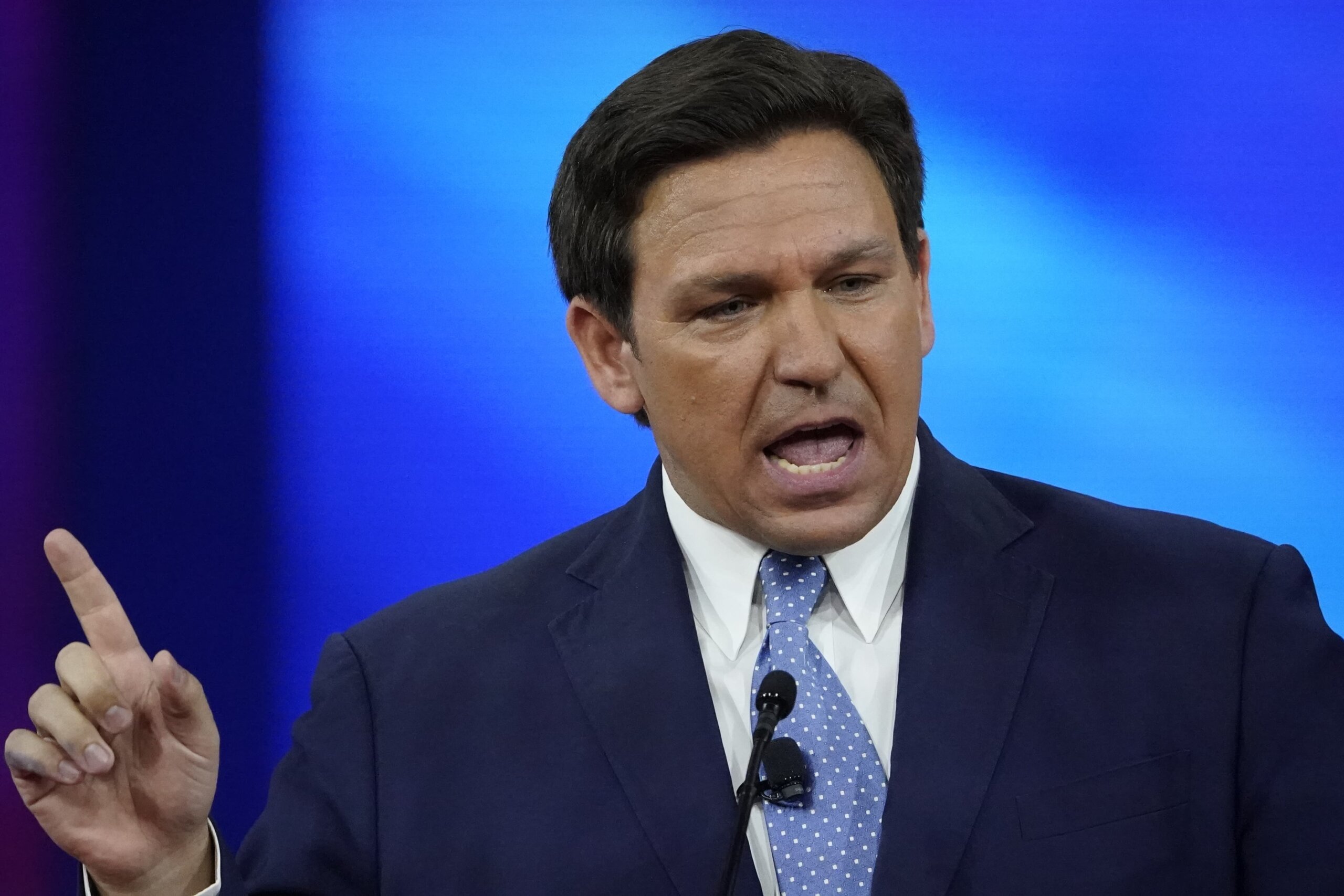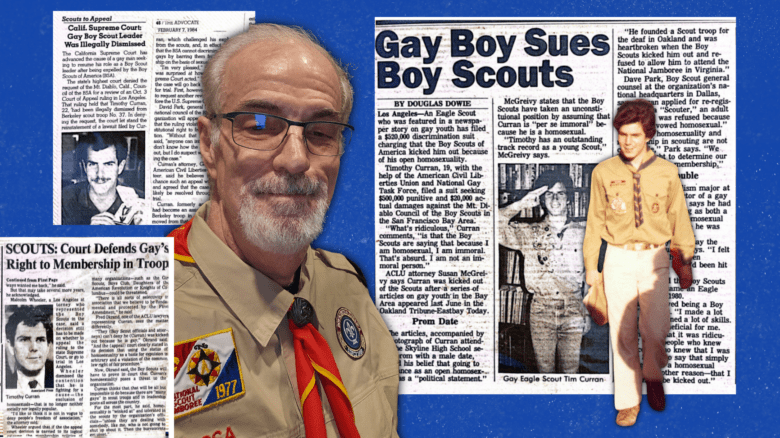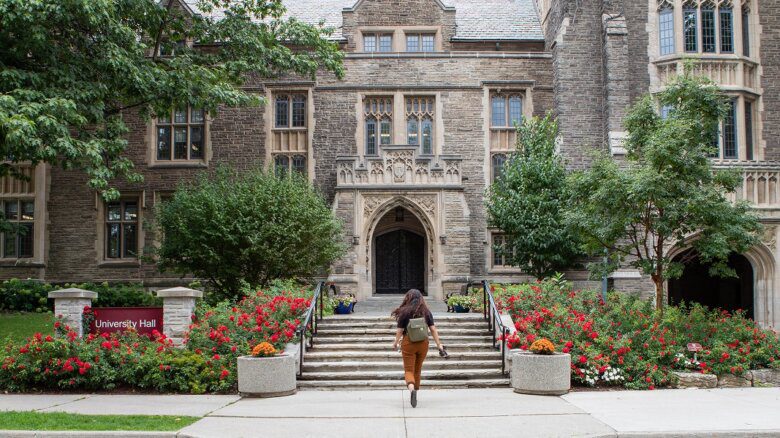LGBTQ2S+ groups are planning to fight back after Florida Gov. Ron DeSantis signed a controversial law on Monday that bans classroom instruction on sexual orientation and gender identity to some elementary school children. The legislation, which has been referred to by critics as the “Don’t Say Gay” bill, adds to the growing list of political attacks on LGBTQ2S+ people across the United States.
Formally known as the “Parental Rights in Education” bill, House Bill 1557 prohibits teachers from talking about LGBTQ2S+ topics to students in kindergarten through to the third grade. The bill allows parents to sue districts if they believe teachers have violated the statute, echoing an abortion bounty law passed in Texas last year.
In signing HB 1557 into law, DeSantis argued that parents should be given more oversight regarding what their children are taught at school.
“We will continue to recognize that in the state of Florida, parents have a fundamental role in the education, health care and well-being of their children. We will not move from that,” DeSantis said at a signing ceremony held at a charter school outside of Tampa. “We will make sure that parents can send their kids to school to get an education, not an indoctrination.”
Since the bill was first introduced in January, LGBTQ2S+ advocates have condemned the legislation, saying it will harm queer and trans youth by making school an unsupportive environment. LGBTQ2S+ youth are subjected to more bullying, harassment and assault, and have higher rates of suicide, according to the Centers for Disease Control and Prevention (CDC). Critics have also warned HB 1557’s vague language could apply to all classrooms, not just K-3 curricula.
“The existence of LGBTQ+ people across Florida is not up for debate, and this restriction on free speech flies in the face of one of our most sacred rights.”
The Human Rights Campaign (HRC) and Equality Florida are among the LGBTQ2S+ rights groups who are calling to repeal the bill.
“The existence of LGBTQ+ people across Florida is not up for debate, and this restriction on free speech flies in the face of one of our most sacred rights,” Joni Madison, interim president of HRC, said in a statement. “So, let’s be clear—this bill must be repealed. We are proud parents, students, and teachers, and LGBTQ+ people deserve to exist boldly and openly, just like everyone else.”
Nadine Smith, executive director of Equality Florida, said DeSantis used the bill to invoke “hateful anti-LGBTQ stereotypes” in order to appeal to a right-wing base as he prepares for a 2024 presidential campaign.
“Equality Florida will defend the rights of all students to have a healthy environment to learn and thrive and for all parents to know their families are included and respected,” Smith said in a statement. “This law will not stand and we will work to see it removed either by the courts as unconstitutional or repealed by the legislature.”
Critics of HB 1557 say the bill could have far-reaching implications. The law requires districts to “adopt procedures for notifying a student’s parent if there is a change in the student’s services or monitoring related to the student’s mental, emotional, or physical health or well-being.” Some advocates fear this could lead to students being outed to their parents without them knowing and prevent LGBTQ2S+ students from speaking with school counsellors.
Across the state, hundreds of students walked out in protest of the legislation earlier this month. Jack Petocz, a junior at Flagler Palm Coast High School and organizer of the statewide protests, was allegedly suspended for “violating student conduct.”
Workers at Disney, one of the largest employers in Florida, also walked out in protest of the bill after CEO Bob Chapek apologized to LGBTQ2S+ employees for not condemning HB 1557 when it was originally introduced. (The House of Mouse was also criticized for donating more than a quarter of a million dollars to backers of the bill.) On Monday, Disney released a statement saying the “goal as a company is for this law to be repealed by the legislature or struck down by the courts.”
LGBTQ2S+ and civil rights groups said they would also fight to ensure the law is overturned, although specific actions have yet to be announced. Nearly a dozen states have passed anti-LGBTQ2S+ laws limiting trans youth sports participation and access to medical care over the past year, which have been met with lawsuits by organizations like the American Civil Liberties Union (ACLU) and Lambda Legal.
“Under this law, LGBTQ+ students and teachers are no longer allowed to be visible in their schools,” Amy Turkel, interim executive director of the ACLU of Florida, said in a statement. “Florida schools should be safe spaces for all students and teachers, not places where their very existence is rejected and erased. It is always appropriate to teach kids to be kind, generous, loving, and supportive; this is how we raise respectful and humane adults.”


 Why you can trust Xtra
Why you can trust Xtra


